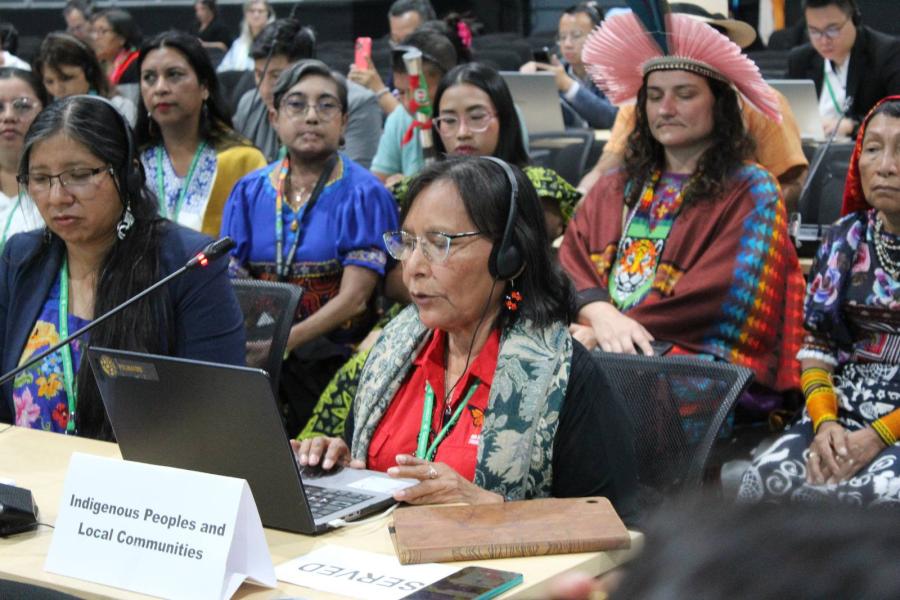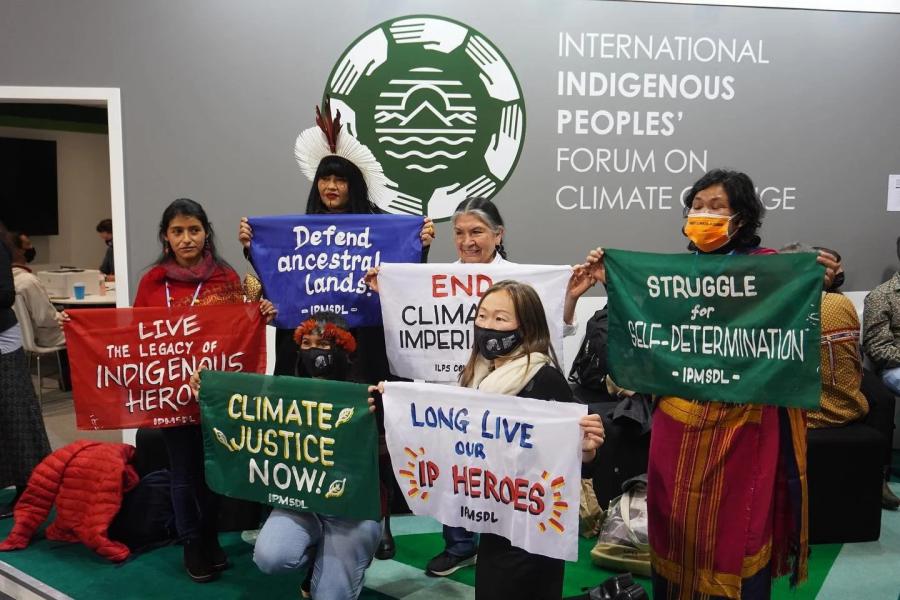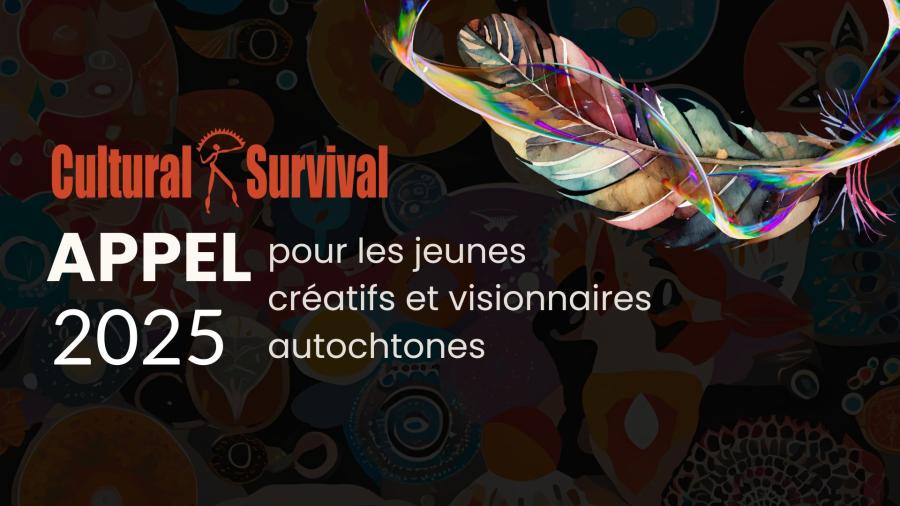
The United Nations Permanent Forum on Indigenous Issues consists of sixteen members: "Eight members to be nominated by Governments and elected by the Council, and eight members to be appointed by the President of the Council following formal consultation with the Bureau and the regional groups through their coordinators, on the basis of broad consultations with Indigenous organizations, taking into account the diversity and geographical distribution of the Indigenous people of the world, as well as the principles of transparency, representation and equal opportunity for all Indigenous people, including internal processes, when appropriate, and local Indigenous consultation processes."
Meet the current members of the Permanent Forum who will serve from January 1, 2020 to December 31, 2022:
Arctic
Ms. Anne Nuorgam (Finland) (Chair of the UNPFII)
Nominated by Indigenous Peoples’ Organizations

Ms. Nuorgam is a long-term Saami politician, who holds a Master of Laws degree and is a currently a PhD student at the University of Lapland. She has been a member of the Saami Parliament of Finland since 2000. Ms. Nuorgam is the Chair of Veahčanjárga Fishery. She has been working on reconciliation issues and now works as the Head of the Saami Council’s Human Rights Unit.
Africa
Mr. Vital Bambanze (Burundi)
Nominated by Governments
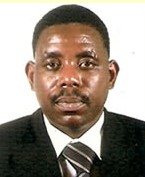
Mr. Bambanze is a former Senator (2010-2015) of Burundi and representative of the Batwa Indigenous Peoples in the Senate of Burundi. He is currently Director of Unite for the Promotion of Batwa (UNIPROBA), an organization created by the Batwa for the Batwa. Mr. Bambanze was one of its founding members in 1999. He holds a degree in African Languages and Literatures from the University of Burundi.
Africa
Mr. Bornface Museke Mate (Namibia)
Nominated by Governments
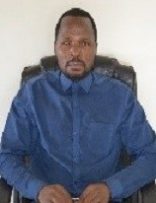
Mr. Mate is a Law graduate from the University of Namibia. He worked in Namibia as a legal officer in the Ministry of Justice’s Department of Legal Services and International Cooperation. He also worked as a personal assistant to the Deputy Minister for Marginalized Communities. Mr. Mate holds several certificates from various institutions majoring in Legal Drafting, Human Rights and Public International Law. He has helped with the drafting of policies and legislations for the benefit of marginalized and indigenous communities, including the implementation of various community development projects in his country.
Currently, Mr. Mate is a development planner for education support in the Office of the Vice President in Namibia, heading the Subdivision of Education in the Division of Marginalized Communities and is responsible for the integration and the protection of human rights of the San, Ovatjimba and Ovatue communities. He is currently pursuing an Honours Degree in International Relations and Cooperation with the University of South Africa.
Africa
Ms. Hindou Oumarou Ibrhaim (Chad)
Nominated by Indigenous Peoples’ Organizations
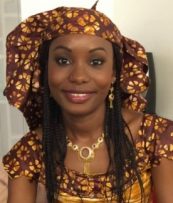
Ms. Hindou Oumarou Ibrahim is an indigenous Mbororo woman from Chad. She is expert in indigenous peoples’ adaptation to climate change, traditional ecological knowledge, and climate change mitigation strategies. She has been the Co-Chair of the International Indigenous Peoples Forum on Climate Change during COP20, COP21, COP22, COP23, that lead to a significant recognition of indigenous peoples’ role in the fight against climate change. Hailing from a Mbororo pastoralist community in Chad, Ms. Ibrahim founded the Association for Indigenous Women and Peoples of Chad (AFPAT) and works to empower indigenous peoples’ voices and ensure their inclusion on international platforms. She leads several concrete projects that improved access to basic need of indigenous peoples, while promoting their unique contribution to the protection of the environment at the local and national level — three-dimensional participatory mapping, for instance, helps to prevent resources-based conflicts in one of the poorest and most vulnerable region of the world. Ms. Ibrahim has also worked on implementing local solution to improve women’s resilience to climate change. Ms. Ibrahim gained recognition for her work and in 2019, she became the laureate of the prestigious Pritzker Emerging Environmental Genius Award.
Asia
Mr. Phoolman Chaudhary (Nepal)
Nominated by Indigenous Peoples’ Organizations
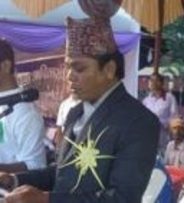
Mr. Chaudhary serves as a Member of the Global Steering Committee of the Indigenous Peoples’ Forum at the International Fund for Agriculture Development (IFAD). He presently also serves as Executive President of Asian Indigenous International Network (AIIN) and Consultant Advisor of Unison for People’s Alliance (UPA) in Nepal, organizations who advocate for indigenous peoples rights and to building the capacity of indigenous peoples to address the challenges facing their respective communities. He has also served as an Indigenous Fellow with the Office of the United Nations High Commissioner for Human Rights (OHCHR) in Geneva, Switzerland.
For over two decades, Mr. Chaudhary has been one of the key players of the indigenous peoples’ movement in Nepal on the issues of indigenous peoples’ rights. He hails from the Tharu community, the second largest indigenous community in Nepal.
He previously worked as a Research Consultant in Adam Smith International, United Kingdom. Consequently, he worked as a Resource Person under the Local Governance and Community Development Program for the Ministry of Federal Affair and Local Development of Nepal. Likewise, He has worked with the United Nations Educational, Scientific and Cultural Organization (UNESCO) as a Senior Program Coordinator in Nepal. He also possesses 10 years’ work experiences as a Theme Leader with the Nepal National Social Welfare Association.
Asia
Ms. Xiaoan Zhang (China)
Nominated by Governments
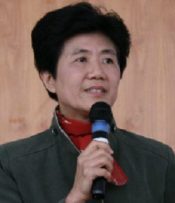
Ms. Zhang Xiaoan graduated from Zhejiang University and further studied in the Graduate Institute of International and Development Studies in Geneva during the late 1980s. She has been in the Chinese foreign service for 29 years and possesses extensive experience in multilateral diplomacy, especially in United Nations affairs. She was posted to the Chinese Permanent Mission to the United Nations in New York from 1991-1995 and 1999-2003. Later, she served as the Deputy Head and Counselor of the Chinese Embassy in Israel for 5 years. She was the Vice-President and Director-General of the United Nations Association of China from May 2010 to Jan 2014. Currently, she is the member of the Executive Board of the United Nations Association of China.
Eastern Europe, Russian Federation, Central Asia and Transcaucasia
Mr. Grigory Evguenievich Lukiyantsev (Russian Federation)
Nominated by Governments
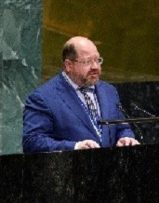
Mr. Lukiyantsev graduated with honors from the International Law Faculty of the Moscow State Institute of International Relations (University) in Moscow, Russian Federation (1994), and has a Ph.D. degree in International Law (1998). He has worked in the foreign service of the Russian Federation since 1994, both at headquarters and abroad.
Mr. Lukiyantsev served as a member of Russian Federation delegations to numerous multilateral fora, including the United Nations General Assembly (alternate representative in the Third Committee in 2003-2019) and the Human Rights Council. He has consulted a number of post-graduates on writing PhD. theses with special emphasis on issues of combatting racism and racial discrimination, protection of national minorities and indigenous peoples, including comparative studies between universal and regional human rights instruments. He is the author of two books and over 20 articles on international cooperation in the field of human rights.
Mr. Lukiyantsev is currently the Special Representative of the Ministry of Foreign Affairs of the Russian Federation for Human Rights, Democracy and the Rule of Law, and Deputy Director of the Department for Humanitarian Cooperation and Human Rights of the Ministry of Foreign Affairs of the Russian Federation.
Eastern Europe, Russian Federation, Central Asia and Transcaucasia
Mr. Sven-Erik Soosaar (Estonia)
Nominated by Governments
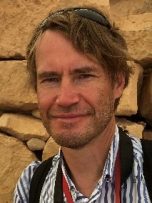
Sven-Erik Soosaar is a language researcher and activist, who currently works as a senior researcher in the Institute of the Estonian Language and a post-doc researcher at the University of Helsinki, Finland. He holds a doctorate (PhD) in the field of linguistics (Estonian language). His main fields of research include Finno-Ugric languages, etymology and historical linguistics. He is a board member of Fenno-Ugria Foundation, a non-profit umbrella organization of organizations with Finno-Ugric interests in Estonia. Since the 1990s, he continues to engage in Finno-Ugric activities in Estonia and has made several expeditions to other Finno-Ugric peoples in Russia, Finland and Latvia. He is active in the Wikimedia movement and is a long-term editor of the Estonian version of Wikipedia.
Eastern Europe, Russian Federation, Central Asia and Transcaucasia
Mr. Aleksei Tsykarev (Russian Federation)
Nominated by Indigenous Peoples’ Organizations
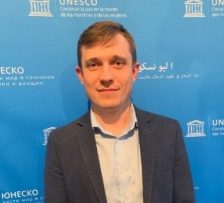
Aleksei Tsykarev is Chair of the Center for Support of Indigenous Peoples and Civic Diplomacy «Young Karelia», an NGO under special consultative status with the United Nations Economic and Social Council. A lifetime activist for the rights of indigenous peoples in Russia, Mr. Tsykarev previously led the International Youth Association of Finno-Ugric Peoples and has served as an independent expert in several United Nations capacities. He is a former Member and Chairperson-Rapporteur of the United Nations Expert Mechanism on the Rights of Indigenous Peoples. He has also served on the Steering Committee for the 2019 International Year of Indigenous Languages.
Mr. Tsykarev holds a Master of Linguistics, and his academic publications focus on indigenous peoples’ rights, particularly in the areas of language and culture. He has provided expertise and consultancy for the World Bank, Food and Agriculture Organization (FAO), Office of the United Nations High Commissioner for Human Rights (OHCHR) and the United Nations Institute for Training and Research (UNITAR). He performs as a guest lecturer and speaker on international human rights standards in universities and institutions across Russia, Europe, North America and Asia. He is a leader of the Karelian people in Russia and has been entrusted to serve in its representative body – the Council of Commissioners of the Karelian Congress, and to represent his people in the World Congress of Finno- Ugric Peoples. Mr. Tsykarev is a member in advisory councils under ministries and ombudsman offices in Russia.
Latin American and Caribbean States
Ms. Lourdes Tibán Guala (Ecuador)
Nominated by Governments
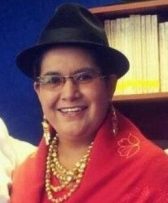
Ms. Tibán Guala is one of the most outspoken advocates for freedom of expression, indigenous rights and social rights in Ecuador. Ms. Tibán Guala is a lawyer and has Master’s degrees in economics and social sciences. She has served in a wide range of government positions and has been involved in Ecuador’s Confederation of Indigenous Nationalities (CONAIE), founded in 1986. CONAIE created its own political party, Pachakutik, in December 1995, through which she was elected for two terms (2005-2008 and 2009-2011) as a member of the National Assembly (Congress) of Ecuador. Ms. Tibán Guala was elected as the first female candidate of Pachakutik to the presidency of Ecuador in the 2017 national primaries.
Latin American and Caribbean States
Mr. Darío José Mejía Montalvo (Colombia)
Nominated by Indigenous Peoples’ Organizations
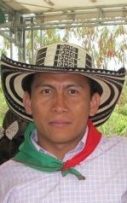
Mr. Mejía Montalvo belongs to the indigenous Zenú Peoples of San Andrés Sotavento. Mr. Mejía Montalvo is a Political Scientist from the National University of Colombia, with a Master’s degree in Development Management from the University of the Autonomous Regions of the Nicaraguan Caribbean Coast (URACCAN). He is a lecturer and consultant for organizations and institutions. He is also a member of the National Commission for Labor and Coordination of Education of the Indigenous Peoples of Colombia (CONTCEPI).
Mr. Mejía Montalvo serves as the leader of the National Indigenous Organization of Colombia (ONIC), and from 2008 to 2012, he served as the ONIC Counselor of Education. Additionally, Mr. Mejía Montalvo is a former member of the Board of Directors of the Fund for the Development of Indigenous Peoples of Latin America and the Caribbean; and the Technical Secretary of the Permanent Dialogue Mechanisms between the National Government and the Indigenous Peoples of Colombia. In 2014, Mr. Mejía Montalvo coordinated the adoption of Decree 1953, the indigenous component of the National Development Plan 2014 and the shortened period procedure “Fast Track,” in the framework of the implementation of the Final Peace Accord.
Latin American and Caribbean States
Mr. Simón Freddy Condo Riveros (Bolivia)
Nominated by Indigenous Peoples’ Organizations
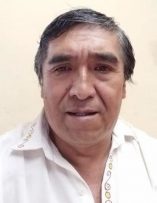
Born to Quechas parents in La Paz, Bolivia, Mr. Simón Freddy Condo Riveros has worked on indigenous issues through academia, journalism, and national policy. He has a degree in Social Communication Sciences and Law. He works as a press officer and director at Huanuni National Radio in the mining district of Huanuni-Oruro.
As a journalist for CEDOIN (Documentation and Information Center), Mr. Condo Riveros was responsible for the Monthly Bulletin “Rural Report”, an information body for farmers, indigenous peoples, and indigenous women. He also served as the editor of a documentation publication for the Congress of the Central Obrera Bolivia (COB) and of the Confederation of Peasants’ Trade Unions of Bolivia (CSUTCB).
Mr. Condo Riveros was also the CSUTCB advisor in the management of Genaro Flores, Juan de la Cruz Villca, Feliz Santos and Román Loayza, as well as to the National Confederation of Indigenous Peasant Women of Bolivia, and the Trade Union Confederation of Intercultural Communities of Bolivia.
Mr. Condo Riveros served as a National Coordinator of the Coordinator of Trade Unions, Indigenous Organizations and Intercultural Communities of Bolivia (COINCABOL), and was responsible for the Inclusive Public Policies Project of the Indigenous Fund of Latin America and the Caribbean (FILAC). He was Vice Minister of Rural Affairs and Vice Minister of Rural and Agricultural Development and advisor to municipalities in indigenous territories and to several social organizations of indigenous peoples, peasants and intercultural communities.
North America
Mr. Geoffrey Roth (United States of America)
Nominated by Indigenous Peoples’ Organizations
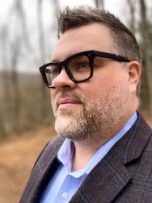
Geoffrey Roth (Standing Rock Sioux) has devoted his entire career, spanning 20 years, to the advocacy of Indigenous rights in diverse sectors. He is currently providing advice on policy and legislative strategies for Urban Indian Organizations. Mr. Roth recently co-founded Inaji , an Indigenous-led technology company, providing culturally competent solutions to improve American Indian/Alaska Native (AI/AN) healthcare. Additionally, Mr. Roth is a small business owner managing real estate portfolios in Washington, D.C.
Former President Barack Obama appointed Mr. Roth in 2010 to serve in the U.S. Department of Health and Human Services (HHS) and the Indian Health Service (IHS), which is responsible for the allocation of a $6 billion US dollars federal appropriation for AI/AN healthcare. During this appointment, Mr. Roth advised executive management of IHS, led the implementation of the Indian Health Care Improvement Act (IHCIA), and collaborated with HHS leadership on the implementation of the Affordable Care Act (ACA). Prior to that, Mr. Roth served as the Executive Director of the National Council of Urban Indian Health (NCUIH), representing community-based Indigenous health centers in cities across the United States. During his tenure, he was integral in ensuring the continuation of the Urban Indian Health program within IHS, and also securing policy gains in the ACA and IHCIA for Urban and all Indigenous people in the USA. Mr. Roth also served as the President of the National Native American AIDS Prevention Center and represented the USA in the International Indigenous Working Group on HIV/AIDS. Ever mindful of remaining grounded in humble service to our youth and elders, Mr. Roth is a fierce advocate for his people in health, education, and self-determination.
North America
Ms. Irma Pineda Santiago (Mexico)
Nominated by Governments
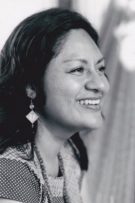
Ms. Pineda Santiago was born in Juchitán, Oaxaca, Mexico. She is a professor at the National Pedagogical University and advises in the Chamber of Deputies. Her interest and activism for the human rights of indigenous people is due to the fact that her father, a Zapotec peasant leader, has been a victim of enforced disappearance by the Mexican army since 1978. She has assisted indigenous peoples in Mexico with strengthening their linguistic and cultural development. She has participated in academic events in forums and universities in America and Europe, giving lectures and workshops on languages, culture and rights of indigenous peoples.
She was president of Writers in Indigenous Languages. Among her published books are: Xilase Nisadó/Nostalgias del mar (SEP, 2006); Doo yoo ne ga’ bia’/De la Casa del ombligo a las Nueve Cuartas (CDI, 2009); Guie’ ni Zinebe/ La Flor que se Llevó (Pluralia-INBA, 2013); Naxiña’ Rului’ladxe’-Rojo Deseo (Pluralia, 2018) y Chupa Ladxidua’ / Dos es mi Corazón (Sec. De Cultura), among others. Her essays have been published by the University of Siena, Italy; Unistmo, DGCP and Colegio de Guerrero. She was a fellow of the FONCA and the National System of Art Creators of Mexico. Her work has been translated into English, German, Italian, Portuguese, Serbian and Russian and appears in various anthologies of America and Europe. She has also held numerous residencies in the following academic institutions: International Center for Literary Translation of the Banff Center of the Arts, in Alberta, Canada; at the Helen Riaboff Whiteley Center at the University of Washington. and at the Calles y Sueños Art House, in Chicago, Illinois, USA.
Western States
Ms. Tove Søvndahl Gant (Denmark)
Nominated by Governments
 <
<
Ms. Tove Søvndahl Gant was born and raised in Qaqortoq in Southern Greenland. She holds a diploma in English language and literature and a Master of Arts in Social and Political Sciences. As an official of the Government of Greenland and in close cooperation with the Government of Denmark, she has followed key UN processes pertaining to indigenous peoples’ rights and sustainable development for nearly three decades. During the 1990s and early 2000s, she was actively involved in Nordic and international networks to support the capacity building of Russian indigenous peoples’ organizations. During her career, she also served as the Executive Secretary of the Indigenous Peoples’ Secretariat of the Arctic Council, charged with facilitating the participation of Arctic Indigenous Peoples’ organizations in the work of the Arctic Council in the field of environmental protection and sustainable development.
Ms. Gant has also served as the Chairperson of the Board of Governors of Ilisimatusarfik, the University of Greenland, from 2008-2012, as well as in the board of Governors for the University of the Arctic, from 2010-2019, where she served as its vice-chair from 2013. Since 2014, Ms. Gant has been seconded to the Human Rights Division of the European External Action Service in Brussels, Belgium, where she works on a range of human rights files, including and inter alia on the rights of indigenous peoples, discrimination (including caste-based), racism, xenophobia, and the rights of persons with disabilities. From 1996-2003, Ms. Gant also served as a Member of the Board of Trustees for the United Nations Voluntary Fund for Indigenous Peoples, and has also served on the Advisory Group for the United Nations International decade on the World’s Indigenous People and the United Nations Voluntary Fund for the International Decade of the World’s Indigenous People.
Western States
Ms. Hannah McGlade (Australia)
Nominated by Indigenous Peoples’ Organizations
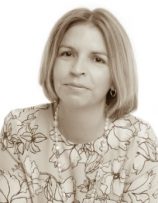
Dr. Hannah McGlade is a Noongar human rights and social justice advocate from Western Australia. She has worked for many Indigenous organizations and bodies and has been active in establishing services for Indigenous women and children impacted by violence. A former Senior Indigenous Fellow at the Office of the United Nations High Commissioner for Human Rights (OHCHR), Dr. McGlade has participated in many United Nations forums to promote Indigenous human rights in Australia.
